Lipid
A lipid is a diverse group of organic molecules that are insoluble in water but soluble in nonpolar solvents. They serve various functions in living organisms, including energy storage, insulation, and forming the structure of cell membranes. Lipids are essential for life and are found in various foods, such as oils, butter, nuts, and avocados.
Types of Lipids
There are several types of lipids, including:
- Triglycerides: Composed of glycerol and three fatty acids, triglycerides are the most common type of lipid found in the body and in food.
- Phospholipids: These lipids form the basis of cell membranes and have both hydrophilic and hydrophobic regions.
- Steroids: Steroids are lipids with a characteristic four-ring structure, including cholesterol and hormones like testosterone and estrogen.
- Waxes: Waxes are long-chain fatty acids linked to long-chain alcohols and are found in protective coatings on plants and animals.
Functions of Lipids
Lipids play several important roles in the body:
- Energy Storage: Triglycerides serve as a long-term energy storage in adipose tissue.
- Insulation: Lipids, particularly in the form of adipose tissue, provide insulation and help regulate body temperature.
- Cell Membrane Structure: Phospholipids are essential components of cell membranes, providing a barrier that controls the movement of substances into and out of the cell.
- Hormone Production: Lipids such as cholesterol are precursors for the synthesis of steroid hormones.
- Protection: Waxes provide protective coatings for plants and animals, helping to prevent water loss and protect against environmental stressors.
Study Guide
When studying lipids, it's important to understand their structure, types, and functions. Here are some key points to focus on:
- Identify the different types of lipids and their structural components.
- Understand the functions of lipids in the body, including energy storage, insulation, and cell membrane structure.
- Explore the role of lipids in hormone production and protection in organisms.
- Examine the presence of lipids in various foods and their impact on human health.
By mastering these concepts, you'll have a solid understanding of lipids and their importance in biological systems.
.◂Science Worksheets and Study Guides Sixth Grade. Introduction to earth science
Study Guide Introduction to earth science
Introduction to earth science  Activity Lesson
Activity Lesson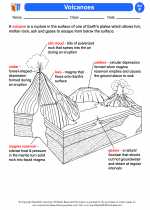 Volcanoes
Volcanoes  Worksheet/Answer key
Worksheet/Answer key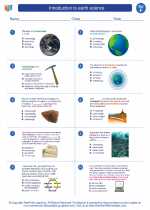 Introduction to earth science
Introduction to earth science  Worksheet/Answer key
Worksheet/Answer key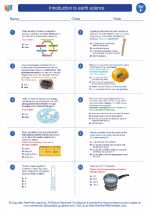 Introduction to earth science
Introduction to earth science  Worksheet/Answer key
Worksheet/Answer key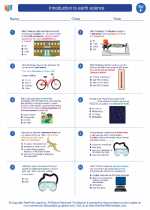 Introduction to earth science
Introduction to earth science  Vocabulary/Answer key
Vocabulary/Answer key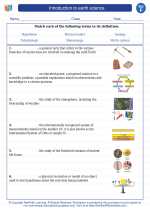 Introduction to earth science
Introduction to earth science  Vocabulary/Answer key
Vocabulary/Answer key Introduction to earth science
Introduction to earth science 

 Activity Lesson
Activity Lesson
 Worksheet/Answer key
Worksheet/Answer key
 Worksheet/Answer key
Worksheet/Answer key
 Worksheet/Answer key
Worksheet/Answer key
 Vocabulary/Answer key
Vocabulary/Answer key
 Vocabulary/Answer key
Vocabulary/Answer key

The resources above cover the following skills:
EARTH AND SPACE SCIENCE